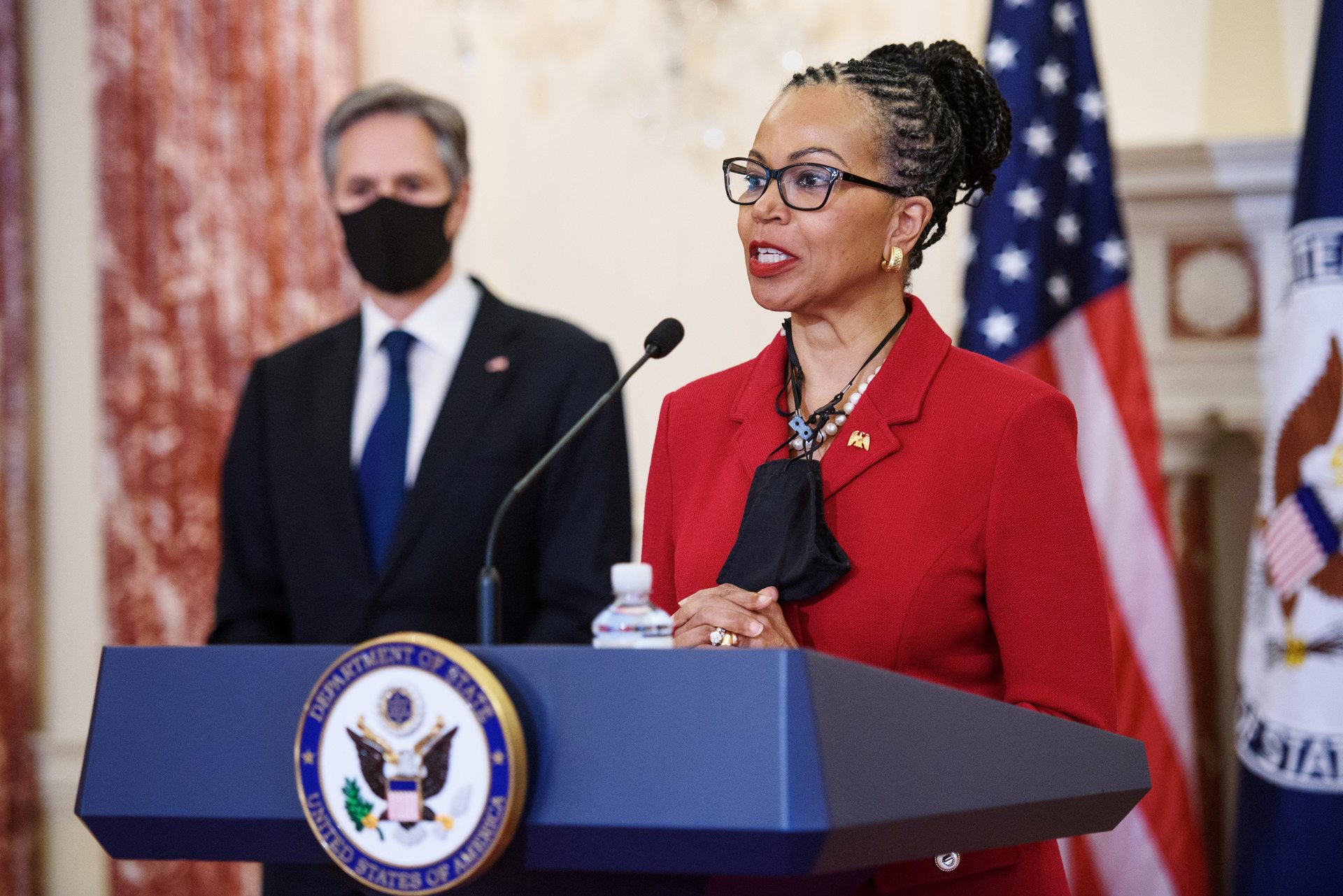Companies need to empower their chief diversity officers
In response to sweeping, loud, and necessary calls for equity by Americans in response to the killing of unarmed Blacks, Fortune 1000 companies have pledged more than $66 billion to push the US towards equality. Companies are investing this money to create jobs and organize communities, to advance Historically Black Colleges and Universities, and to promote corporate anti-racism work.


In response to sweeping, loud, and necessary calls for equity by Americans in response to the killing of unarmed Blacks, Fortune 1000 companies have pledged more than $66 billion to push the US towards equality. Companies are investing this money to create jobs and organize communities, to advance Historically Black Colleges and Universities, and to promote corporate anti-racism work.
They’re turning inward, too. Corporate America is hiring chief diversity and inclusion officers in record numbers.
Among the Fortune 500, Zoominfo found that the number of positions hired in leading diversity and inclusion roles tripled from 500 in the first half of 2020 to more than 1,500 towards the end of the year.
Historically, corporate diversity and inclusion professionals have been put in a position to fail. Research done by firm Russell Reynolds notes that many professionals accept the role of chief diversity officer at companies despite not having the support of all influential corporate leaders or a clear vision. As a result, corporate diversity and inclusion professionals historically underachieve. They often fail to execute their responsibilities as risk officers who lead the implementation of equitable practices and the dismantling of systems that promote inequity.
Today, the stakes are too high for Blacks everywhere for chief diversity and inclusion officers to underperform. Unless companies correct these impediments, in 2022 the Fortune 500 could experience a dramatic decline in chief diversity and inclusion officers. Moreover, their dismissal could carry the additional sting of being scapegoated for unmet corporate commitments to equity and anti-racism efforts. This conclusion would mean the loss of a historic opportunity to advance equity in the workplace—an opportunity we will likely not have again for another 50 years.
Having spent more than 33 years as a developer of diverse talent, I’ve seen organizations that have charted responsibly in undertaking equity work and hiring chief diversity officers. One company that comes to mind is Procter & Gamble. Its “Take on Race” coalition creates meaningful and lasting impact on racial equity in America by convening multiple corporations in a collaborative effort to address racism and disparities. This in itself is revolutionary in that it acknowledges that the work of advancing equity cannot be achieved solely from the efforts of one or two corporate diversity professionals.
Here are some other practices that, if implemented, will increase the chances that a company’s corporate diversity professional will be positioned to be effective:
Chief diversity and inclusion officers must be empowered to disrupt existing practices
Having chief diversity officers who merely provide theoretical analyses of current corporate culture is not enough. They must also be empowered and endowed with budgets to disrupt harmful and divisive practices. This could include being provided resources to lead corporate sustainability efforts, the ability to tie equity work to employee compensation, and dismantling philanthropic and recruitment practices wrought with affinity bias.
Chief diversity and inclusion officers must focus on anti-racism, not just equity
Equity work is the new movement within corporate America. But in a corporate culture that espouses racism, equity cannot not survive. Chief diversity officers must have the support of leaders to hone in on the hard work of lifting up and removing racist trappings from corporate practices.
Chief diversity and inclusion officers must be allowed to change human resources practices
One of the most pronounced and hallowed engines for elitism in corporate America rests within the unwritten processes for hiring and promoting employees. Employee performance evaluation processes are fertile ground for affinity bias and cronyism. Corporate diversity and inclusion professionals must be allowed to root out the presence of racist and biased behavior in human resources practices in order to truly create sustainable change in corporate culture.
The Black Lives Matter movement demands that sustainable and irreversible change result from the lives that have been lost to inequity. If hiring corporate diversity and inclusion professionals is part of the corporate strategy for meeting these demands, company leaders need to put them in a position to win by empowering them to implement sustainable and permanent anti-racism work within a corporate culture.